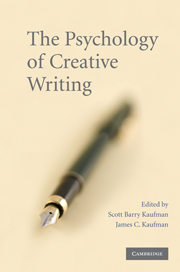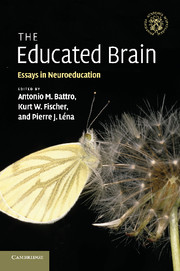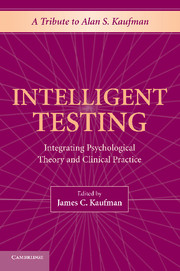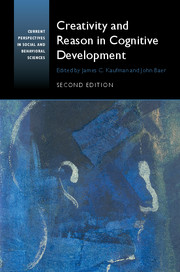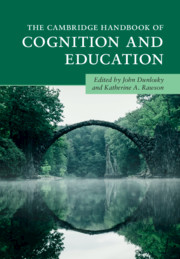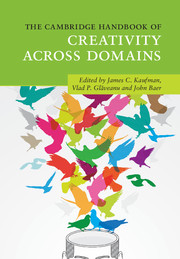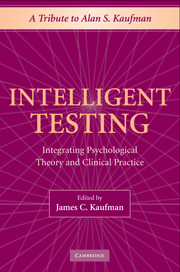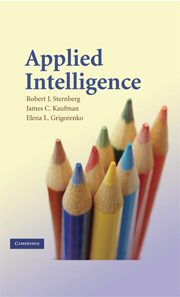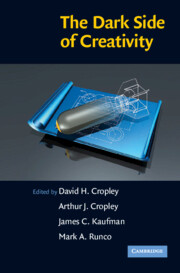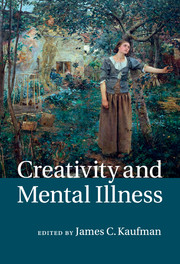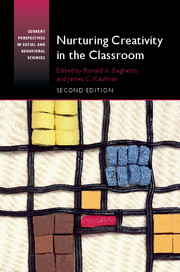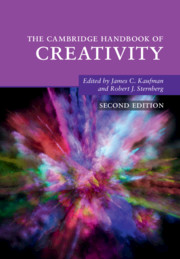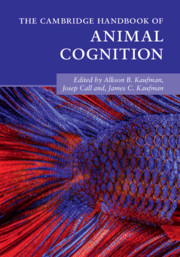The Psychology of Creative Writing
$63.99 ( ) USD
- Editors:
- Scott Barry Kaufman, Yale University, Connecticut
- James C. Kaufman, California State University, San Bernardino
- Date Published: September 2009
- availability: This ISBN is for an eBook version which is distributed on our behalf by a third party.
- format: Adobe eBook Reader
- isbn: 9780511590665
Find out more about Cambridge eBooks
$
63.99 USD
( )
Adobe eBook Reader
Other available formats:
Paperback, Hardback
Looking for an examination copy?
If you are interested in the title for your course we can consider offering an examination copy. To register your interest please contact [email protected] providing details of the course you are teaching.
-
The Psychology of Creative Writing takes a scholarly, psychological look at multiple aspects of creative writing, including the creative writer as a person, the text itself, the creative process, the writer’s development, the link between creative writing and mental illness, the personality traits of comedy and screen writers, and how to teach creative writing. This book will appeal to psychologists interested in creativity, writers who want to understand more about the magic behind their talents, and educated laypeople who enjoy reading, writing, or both. From scholars to bloggers to artists, The Psychology of Creative Writing has something for everyone.
Read more- An extensive concluding chapter integrating the many and varied ideas in the book
- A wide array of topics within the general area of the psychology of creative writing
Reviews & endorsements
“An outstanding collection of provocative essays. Psychologists, writers, and anyone who likes to read, think, and learn will enjoy this profoundly revealing window into the creative process.”
—Josh Waitzkin, author of The Art of Learning
See more reviews“[T]his book . . . has an enormous amount of information and insight on the process and practice of creative writing, and I believe writers and non-writers, creative or not, can benefit from its discussions.”
—Piers Anthony
”The Psychology of Creative Writing offers unparalleled insight into the lives, minds, and processes of literary artists. The book is an utterly original and deeply satisfying exploration of the creative writer, a nuanced study that consistently dispels myths and engages the myriad, fascinating complexities of how literature is made. In assembling the book, the editors have opened a new field of inquiry into the psychological experiences, costs, and rewards of the writing life. Every reader and writer is in their debt.”
—Bret Anthony Johnston, Harvard University, author of Corpus Christi: Stories
“It’s an intellectual treat to see the best-known writers in creativity research writing creatively about creative writing. Kaufman and Kaufman have assembled a fine team of scholars to illuminate how people create with the written word.”
—Paul J. Silvia, University of North Carolina at Greensboro, author of How to Write A Lot
“What are the secrets of creative writing? Who are the creative writers? What is so special about what they do (when it works), and how do we help others, or ourselves, to find that magic? Here is psychological research, theory, and experiential wisdom from well-known experts, on creative person, process, product, and cultivation of creativity – both in eminent writers, and in our own everyday efforts. The book rings with value and can open new doors for both scholars and practitioners. A unique contribution – highly recommended.”
—Ruth Richards, Saybrook Graduate School, editor of Everyday Creativity and New Views of Human Nature
“Like a multiperspectival novel itself, with surprising revelations and an interesting cast of characters, this wide-ranging collection by well-known creativity researchers provides a valuable resource about creative writing: where the corroboration and conflicts are among studies, and where opportunities lie for further expanding our understanding of creativity and the literary arts.”
—Seana Moran, Stanford University"...This rich collection of papers by (mostly) psychologists who research creative writing from a great variety of perspectives offers major sections on the writer, text, process, development, and education... this volume a good one to have at hand."
—Rebecca Wells Jopling , OnFictionCustomer reviews
Not yet reviewed
Be the first to review
Review was not posted due to profanity
×Product details
- Date Published: September 2009
- format: Adobe eBook Reader
- isbn: 9780511590665
- contains: 7 b/w illus. 8 tables
- availability: This ISBN is for an eBook version which is distributed on our behalf by a third party.
Table of Contents
Part I. The Writer:
1. The Personalities of Creative Writers Jane Piirto
2. Killing Your Babies: The Creative Writer, Locus of Control, and Rumination E. M. Skrzynecky and James C. Kaufman
3. 'The more I write, the better I write, and the better I feel about myself': Mood Variability and Mood Regulation in Student Journalists and Creative Writers Adèle Kohanyi
4. Characteristics of Eminent Screenwriters: Who Are Those Guys? Steven R. Pritzker and David McGarva
5. The Tears of a Clown: Understanding Comedy Writers Scott Barry Kaufman and Aaron Kozbelt
Part II. The Text:
6. The Evolution of Creative Writing Daniel Nettle
7. Literary Creativity and Physiognomy: Expressiveness in Writers, Readers, and Literature Martin S. Lindauer
8. The Literary Genius of William Shakespeare: Empirical Studies of His Dramatic and Poetic Creativity Dean Keith Simonton
Part III. The Process:
9. In search of the writer's creative process Todd Lubart
10. Writing as a collaborative act R. Keith Sawyer
11. Writing as an interaction with ideas Mark A. Runco
12. Creative Cognition in Science Fiction and Fantasy Writing Thomas B. Ward and E. Thomas Lawson
Part IV. The Development:
13. Writing in flow Susan K. Perry
14. Writers' Blocks and Blocked Writers: Using Natural Imagery to Enhance Creativity Jerome L. Singer and Michael V. Barrios
15. Pretend Play, Emotional Processes, and Developing Narratives Sandra W. Russ
16. The Healing Powers of Expressive Writing Janel D. Sexton and James W. Pennebaker
Part V. The Education:
17. How Rewards and Evaluations Can Undermine Creativity (and How to Prevent This) John Baer and Sharon S. McKool
18. Teaching Writing by Demythologizing Creativity Grace R. Waitman and Jonathan A. Plucker
19. Creation and Response: Wellspring to Evaluation Genevieve E. Chandler and Pat Schneider
20. Fostering Creative Writing: Challenges Faced by Chinese Learners Ai-Girl Tan
21. Putting the Parts Together: An Integrative Look at the Psychology of Creative Writing Scott Barry Kaufman and James C. Kaufman.Instructors have used or reviewed this title for the following courses
- Creative Nonfiction Writing Workshop
- Foundations ofWriting
- Introduction fo Creative Writing: Fiction
- Poetry & Fiction Writing
- Psychology and Literature
- Psychology of Artistic Expression
- The Creative Process
- The Study of Creative Writing
- The Teaching of Writing
Sorry, this resource is locked
Please register or sign in to request access. If you are having problems accessing these resources please email [email protected]
Register Sign in» Proceed
You are now leaving the Cambridge University Press website. Your eBook purchase and download will be completed by our partner www.ebooks.com. Please see the permission section of the www.ebooks.com catalogue page for details of the print & copy limits on our eBooks.
Continue ×Are you sure you want to delete your account?
This cannot be undone.
Thank you for your feedback which will help us improve our service.
If you requested a response, we will make sure to get back to you shortly.
×
